Kobe Bryant Through the Years

Kobe Bryant Through the Years
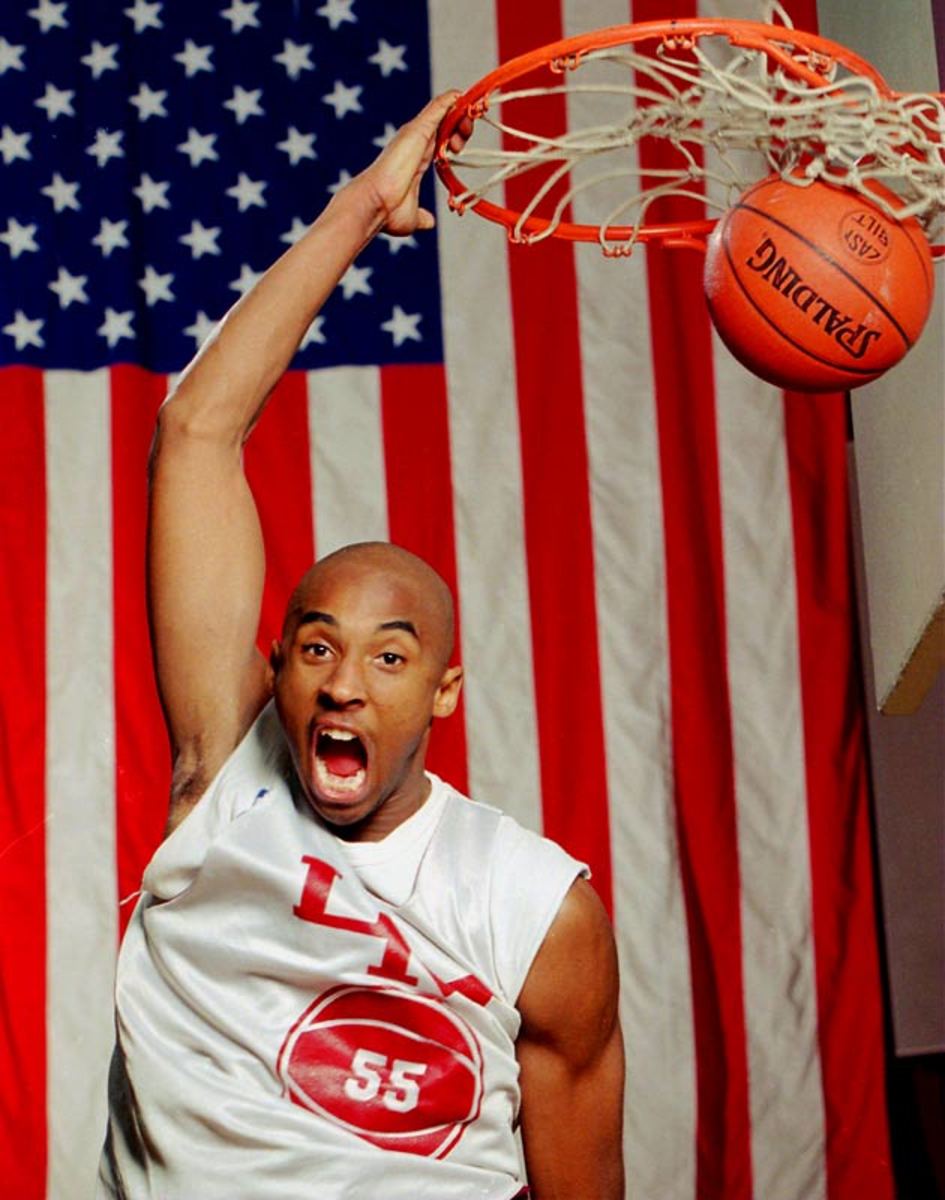
NBA scouts racked up the frequent flyer miles in 1996 to observe a 17-year-old senior at Lower Merion (Pa.) High School named Kobe Bryant, the son of former NBA journeyman Joe (Jelly Bean) Bryant. Kobe was capable of playing all five positions at Lower Merion, where he broke Wilt Chamberlain's record for most points scored in southeast Pennsylvania history. "Do I think he could make it in the NBA right now? Yes, I think he has the skills," then-Nets player personnel chief Hal Wissel told <i>The New York Times</i>.
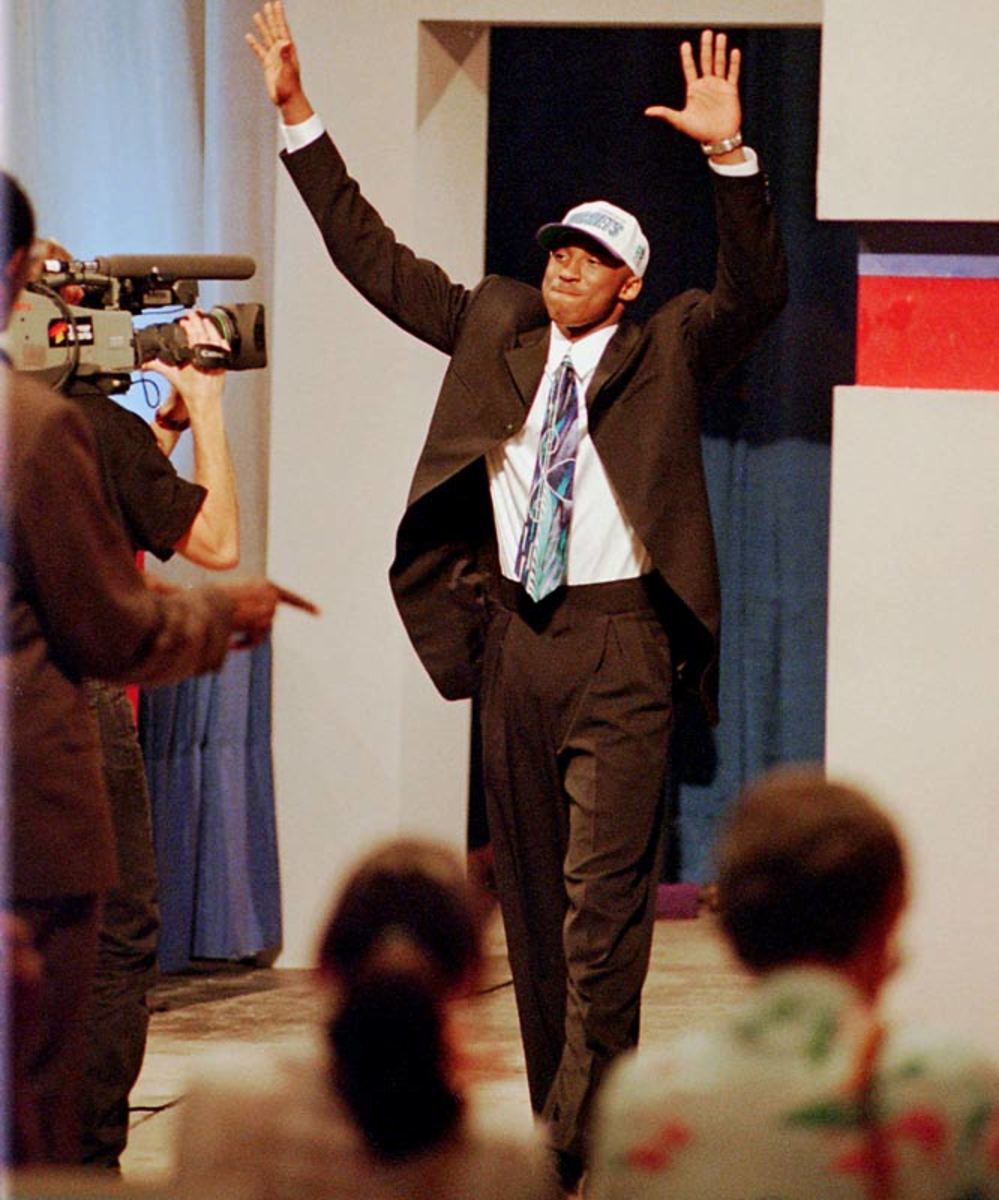
With eyes on the biggest free-agent prize, Shaquille O'Neal, Lakers GM Jerry West shipped starting center Vlade Divac to the Charlotte Hornets in a draft-night trade in 1996. In return, the Lakers received the 13th pick: Kobe Bryant. The deal gave the Lakers an additional $3.3 million, which they used as part of the contract that lured O'Neal away from Orlando.
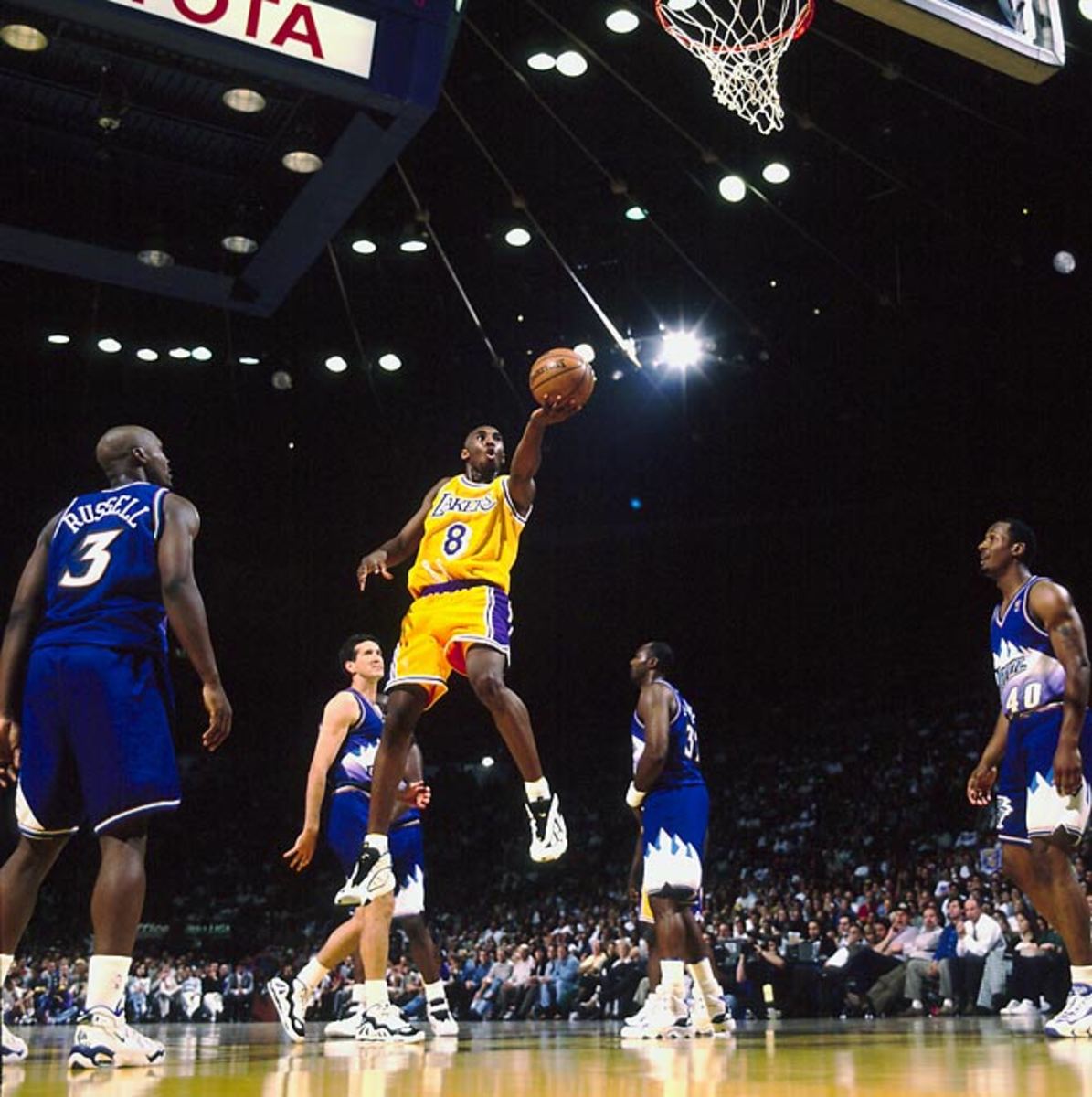
Though only a rookie, and an 18-year-old one at that, Bryant tried to take matters into his own hands in a series-ending playoff loss to the Utah Jazz in 1997. The results were disastrous. With Shaq having fouled out midway through the fourth quarter, Bryant fired up four air balls on long jumpers -- one at the end of regulation and three more in overtime. The Jazz won 98-93 in that Game 5 to advance to the Western Conference finals.
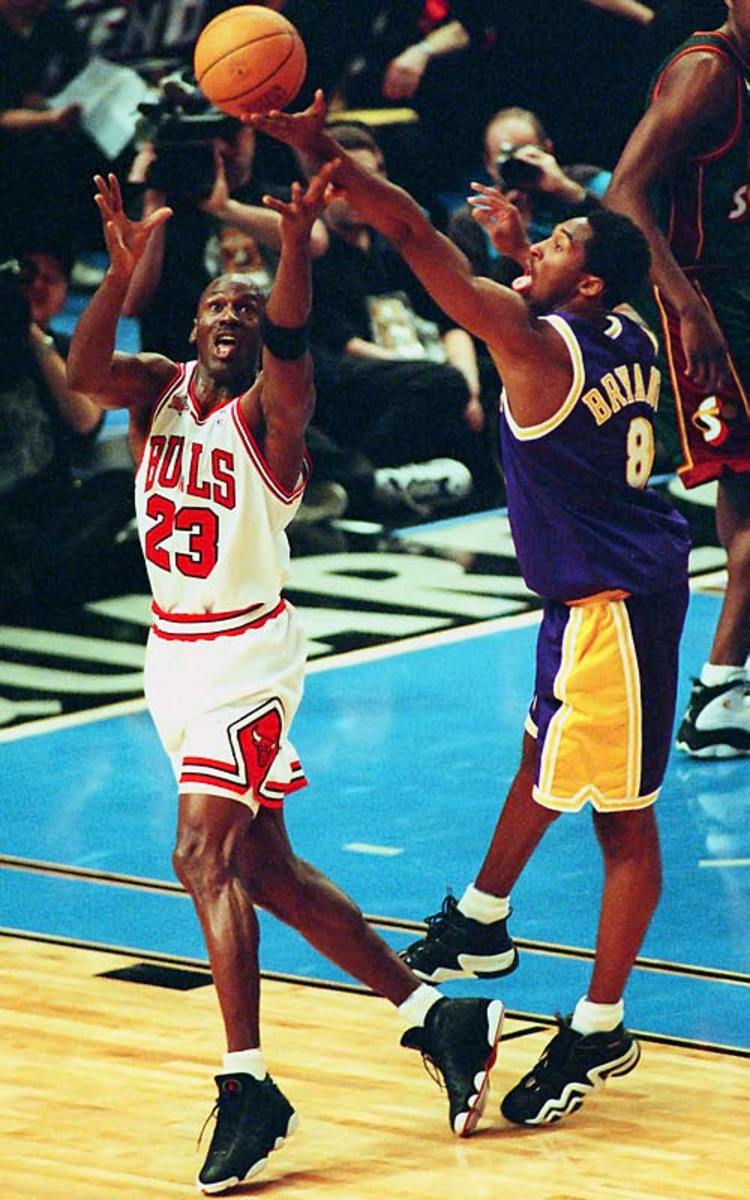
In only his second season, Bryant became the darling of Madison Ave., as newspaper ads promoting the 1998 All-Star Game portrayed a face-off between Bryant and a soon-to-retire Michael Jordan. Bryant did his part to play into the hype, scoring 18 points in 22 minutes through three quarters, and at one point waving off a screen from Karl Malone so he could challenge Jordan directly. But West coach George Karl ended the showdown, sitting Bryant in the final quarter as Jordan walked away with the game's MVP trophy. Karl intimated that Bryant was benched because of grumbling from veterans such as Malone, who said, "I told Coach Karl, 'Hey, when younger guys are telling me, Get out of the way, that's a game I don't need to be in.' "
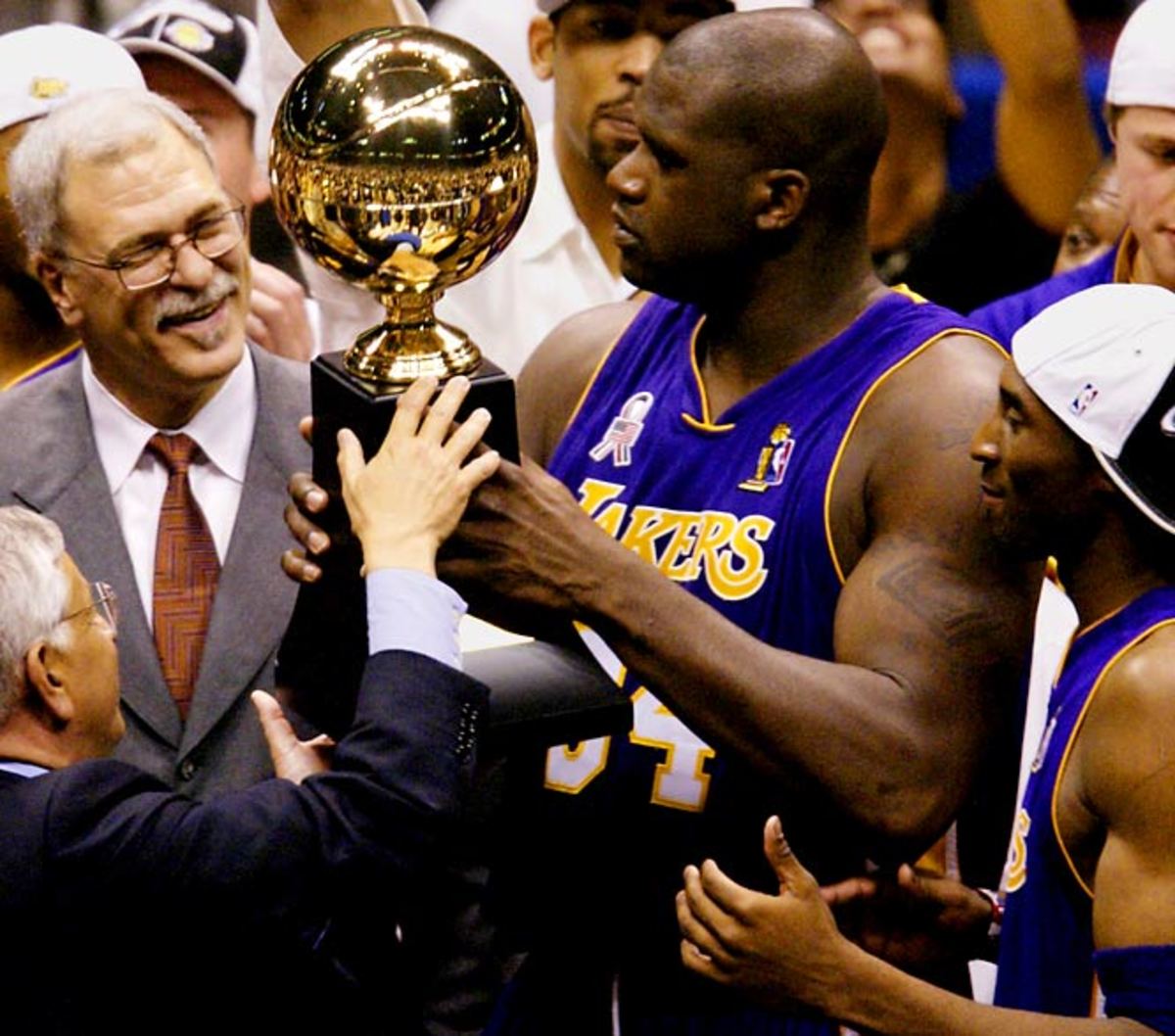
After being dispatched in the second round of the playoffs in each of his first three seasons, Bryant and the Lakers willingly accepted the Zen-inflected teachings of new coach Phil Jackson and rolled to the 2000 NBA title over the Pacers. Phil, Shaq and Kobe would combine to win the next two titles after that before an aging supporting cast and an unhealthy dose of Tim Duncan ended the Lakers' mini-dynasty in 2003.
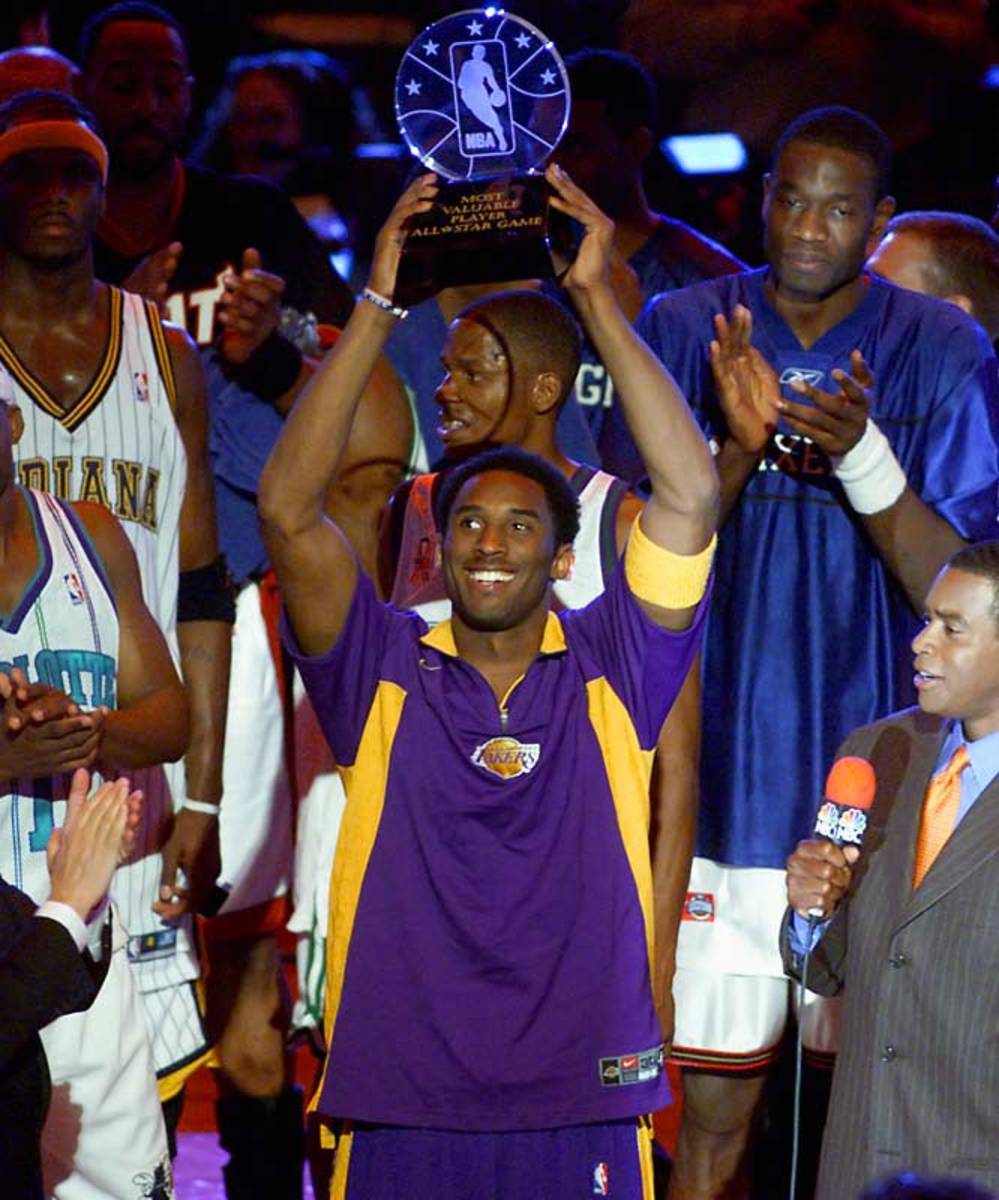
Eight months after he helped the Lakers beat the 76ers in the Finals, Bryant absorbed the wrath of Philadelphia fans at the 2002 All-Star Game. Bryant was booed from pregame introductions through the postgame ceremony in which he was handed the game MVP award. "I don't know what to say," Bryant said after scoring a game-high 31 points in the city where he played in high school. "It was something that I can't really describe the feelings that I have when it happened. I'm happy to win MVP in Philadelphia. The booing was just hurtful. But it's not going to ruin this day for me."
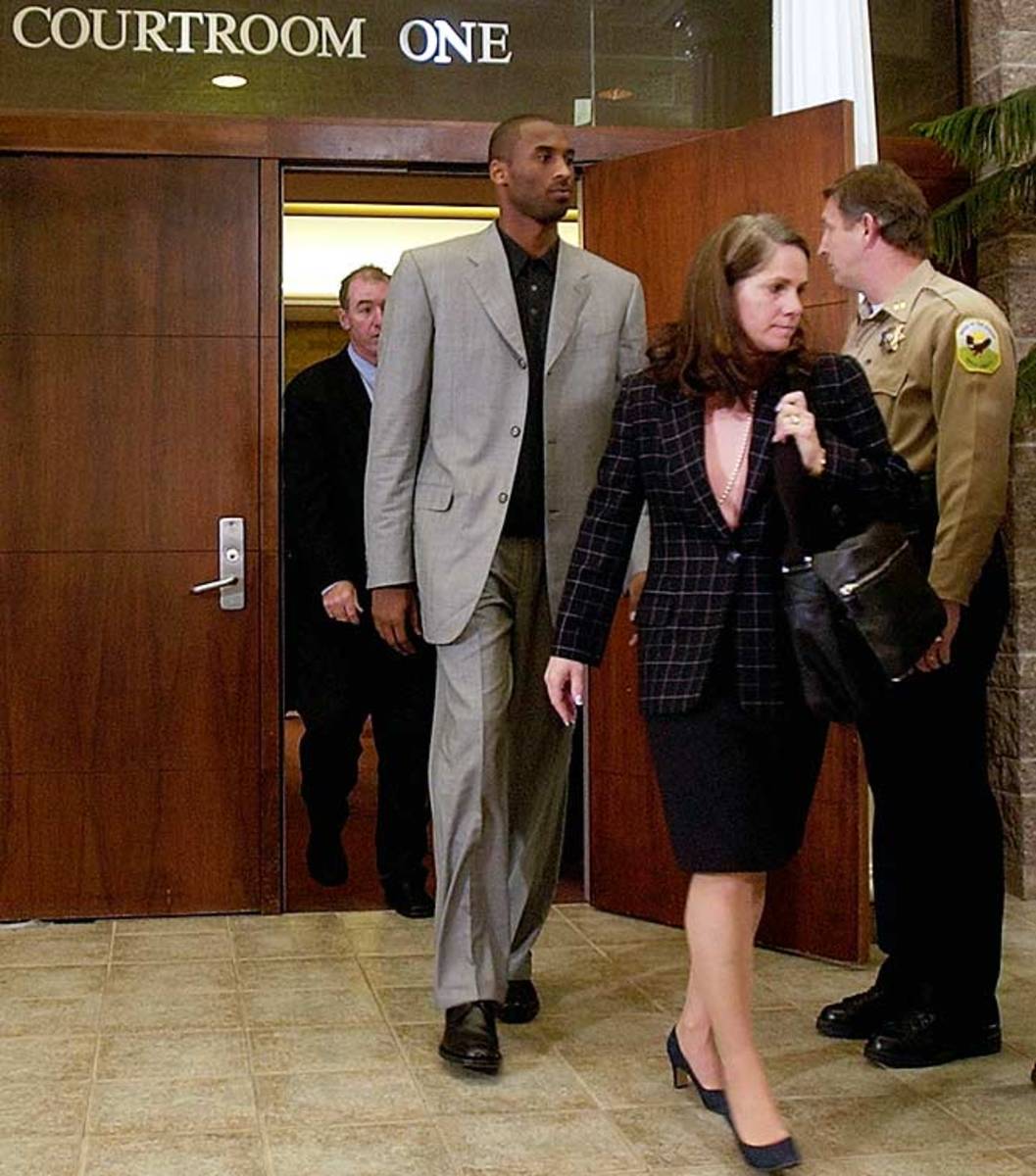
On July 4, 2003, an arrest warrant was issued for Bryant after a 19-year-old woman said she was sexually assaulted by Bryant at a lodge near Vail, Colo. Bryant admitted to having consensual sex with the woman, who worked at the lodge's front desk, but was indicted on one count of sexual felony assault. News about the impending trial enveloped the team throughout the season and forced Bryant to often commute via charter jet from court hearings in Colorado to games in progress. Prosecutors stunned many observers in dropping their case against Bryant less than a week before opening statements were to be made.
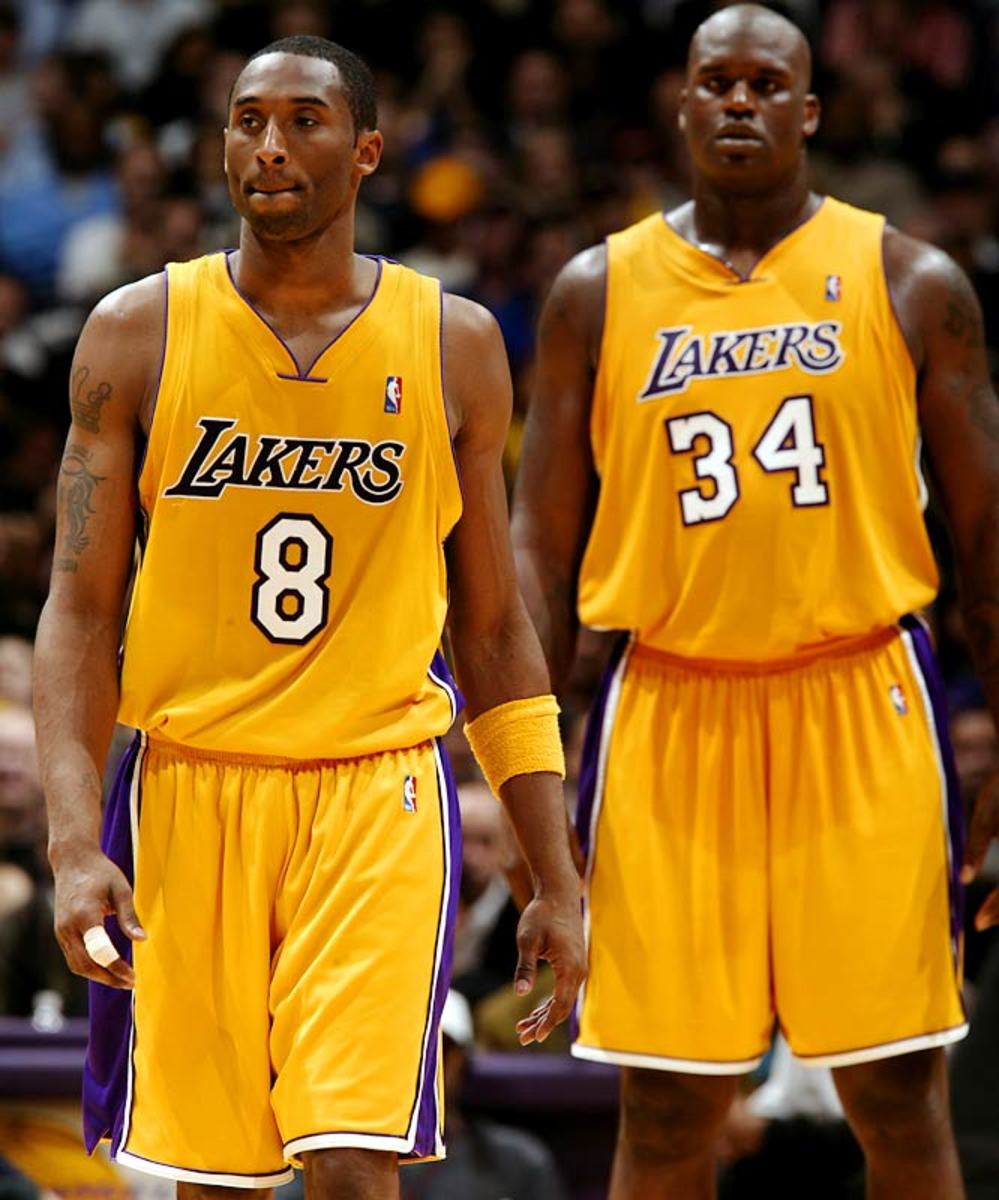
Kobe and Shaq spent many of their eight years together at odds over everything from locker room leadership to team commitment to shots. Shaq claimed Bryant "needs advice on how to play team ball," and Kobe asserted Shaq shouldn't come into training camp ''fat and out of shape when your team is relying on your leadership on and off the court." Phil Jackson later wrote of the relationship, "At times, the pettiness between the two of them can be unbelievably juvenile.''
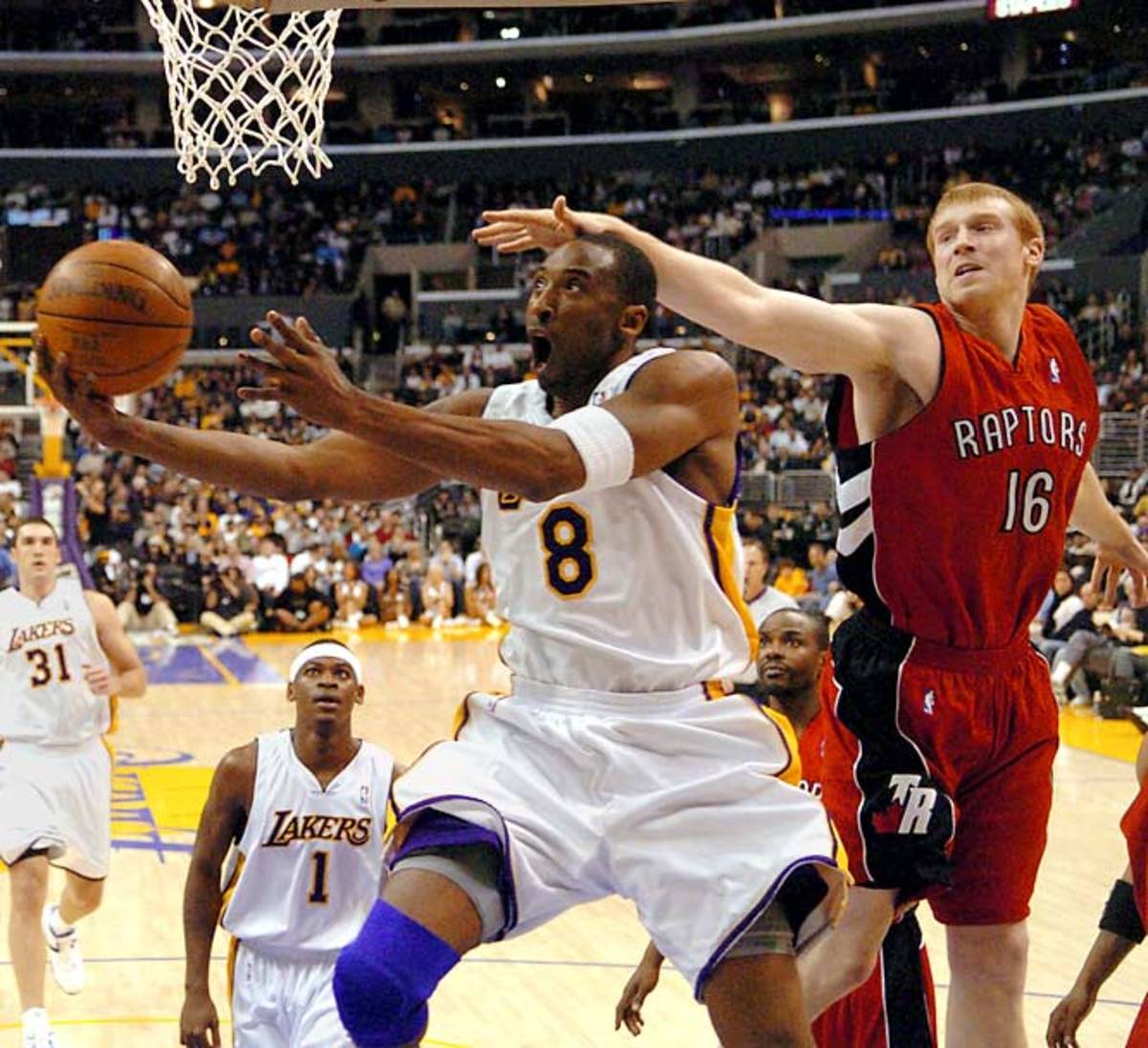
Bryant scored 81 of the Lakers' 122 points in a victory against the Raptors on Jan. 22, 2006, the second-highest-scoring game in NBA history behind Wilt Chamberlain's 100-point performance in 1962. Bryant shot 28-of-46 from the floor overall and scored 55 points in the second half. "That was something to behold," Phil Jackson said. "It was another level. I've seen some remarkable games, but I've never seen one like that before."
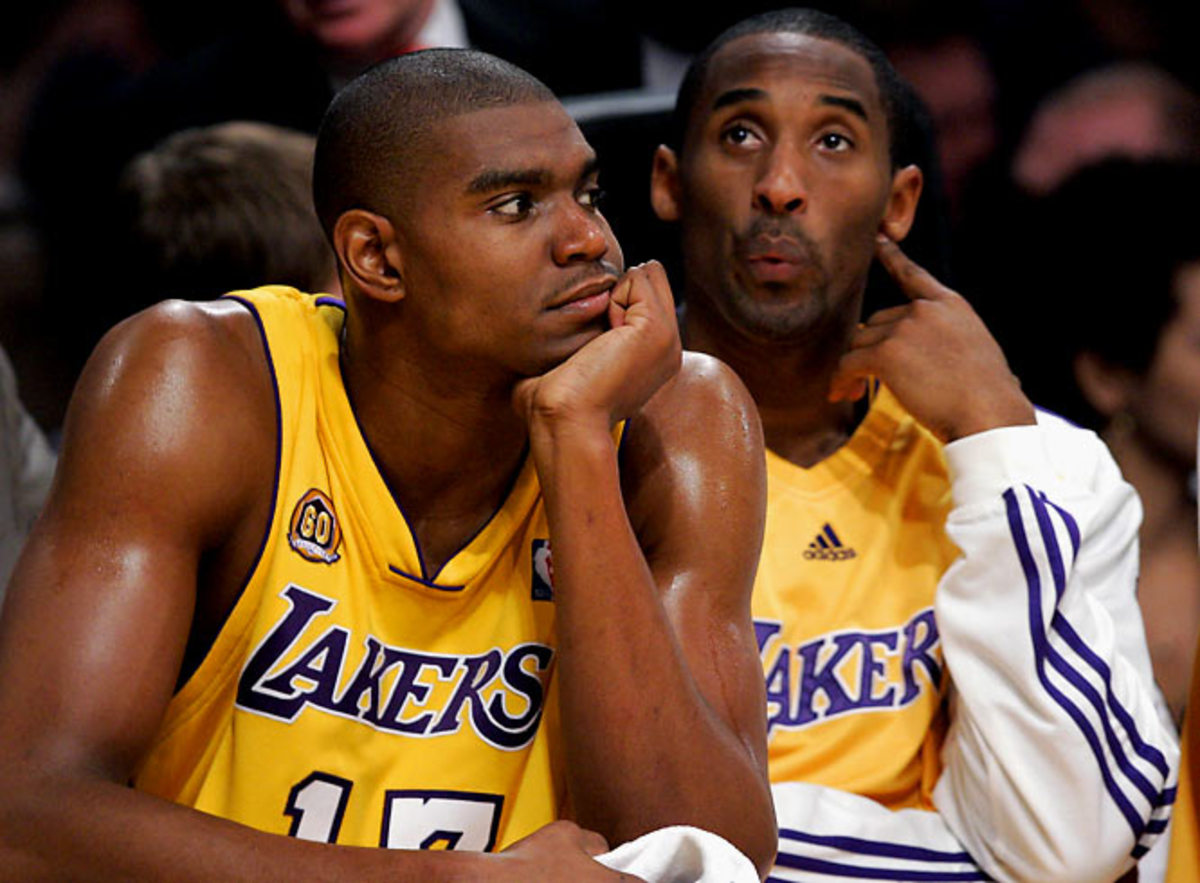
After back-to-back first-round exits in '06 and '07, and after the Lakers refused to part with young center Andrew Bynum in a trade for Jason Kidd at the '07 deadline, Bryant took his displeasure public. Over the course of a month, Bryant appeared in a profanity-laced amateur video ridiculing GM Mitch Kupchak and Bynum before describing the team's front office as "a mess" and confirming his request to be traded.
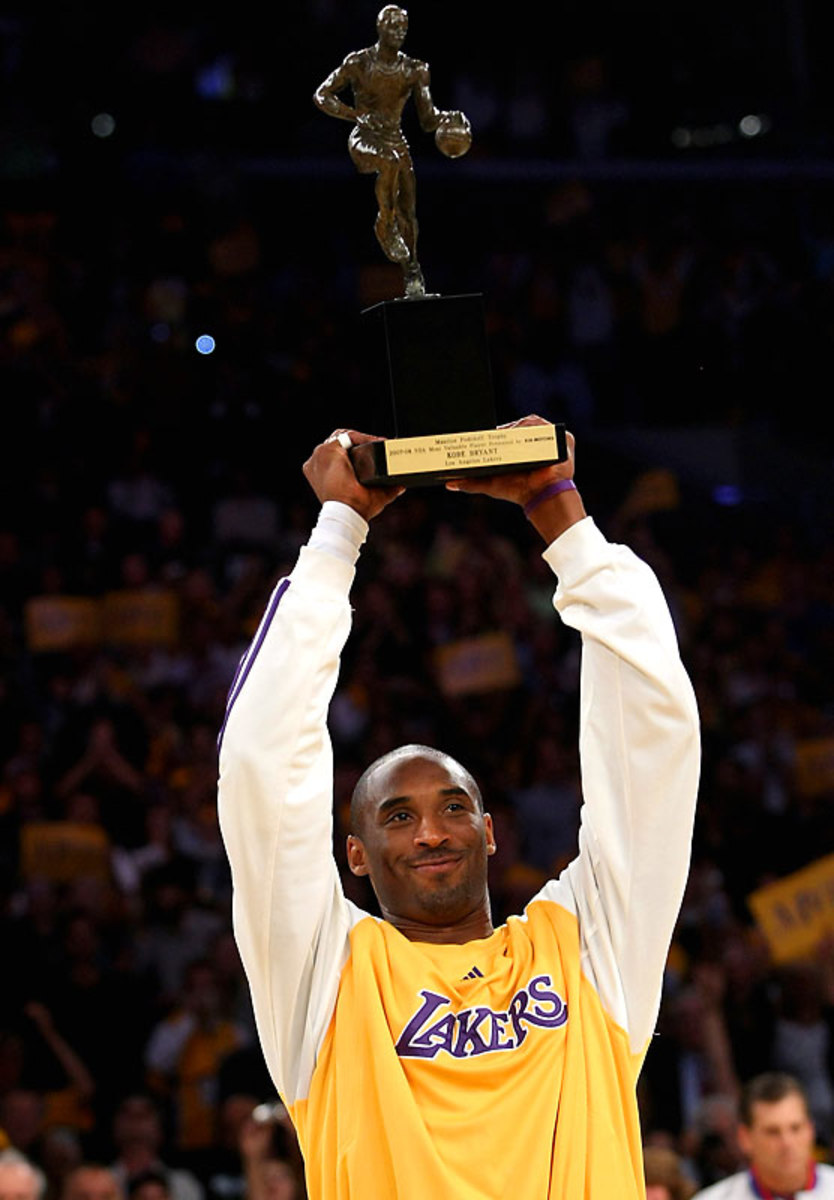
Less than a year after requesting a trade, Bryant led a young Lakers team to a 15-game improvement and the top playoff seed in the 2008 Western Conference playoffs. Bryant won his first MVP award and -- with help from midseason acquisition Pau Gasol and a cast of developing young players -- lifted L.A. into the NBA Finals against the Celtics.
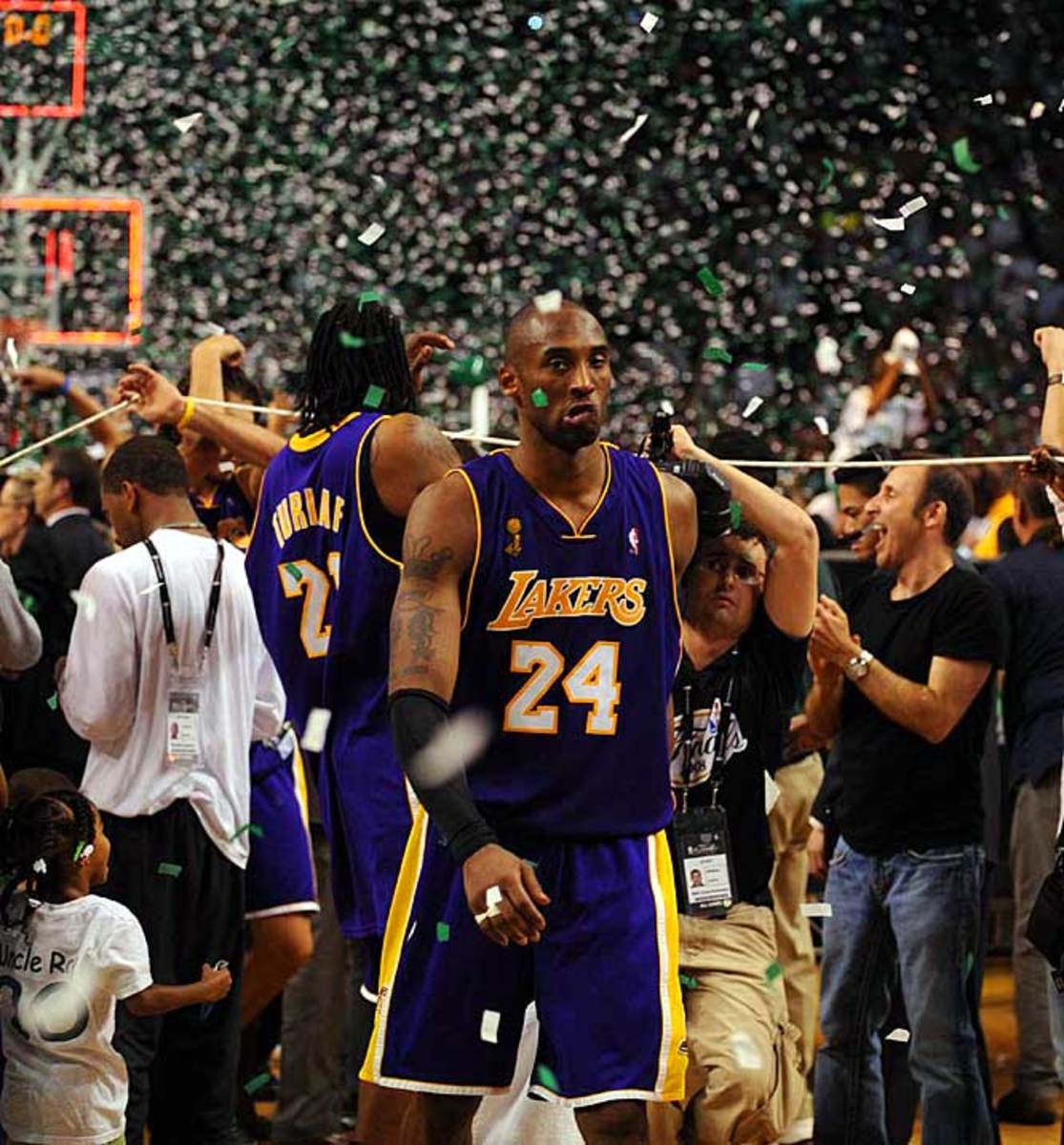
Bottled up by the Celtics' stifling defense, Kobe and the Lakers lost the 2008 Finals in six games. ''They were definitely the best defense I've seen the entire playoffs," Bryant said after the Lakers were routed 131-92 in Game 6. ''I've seen some pretty stiff ones and this was right up there with them.''
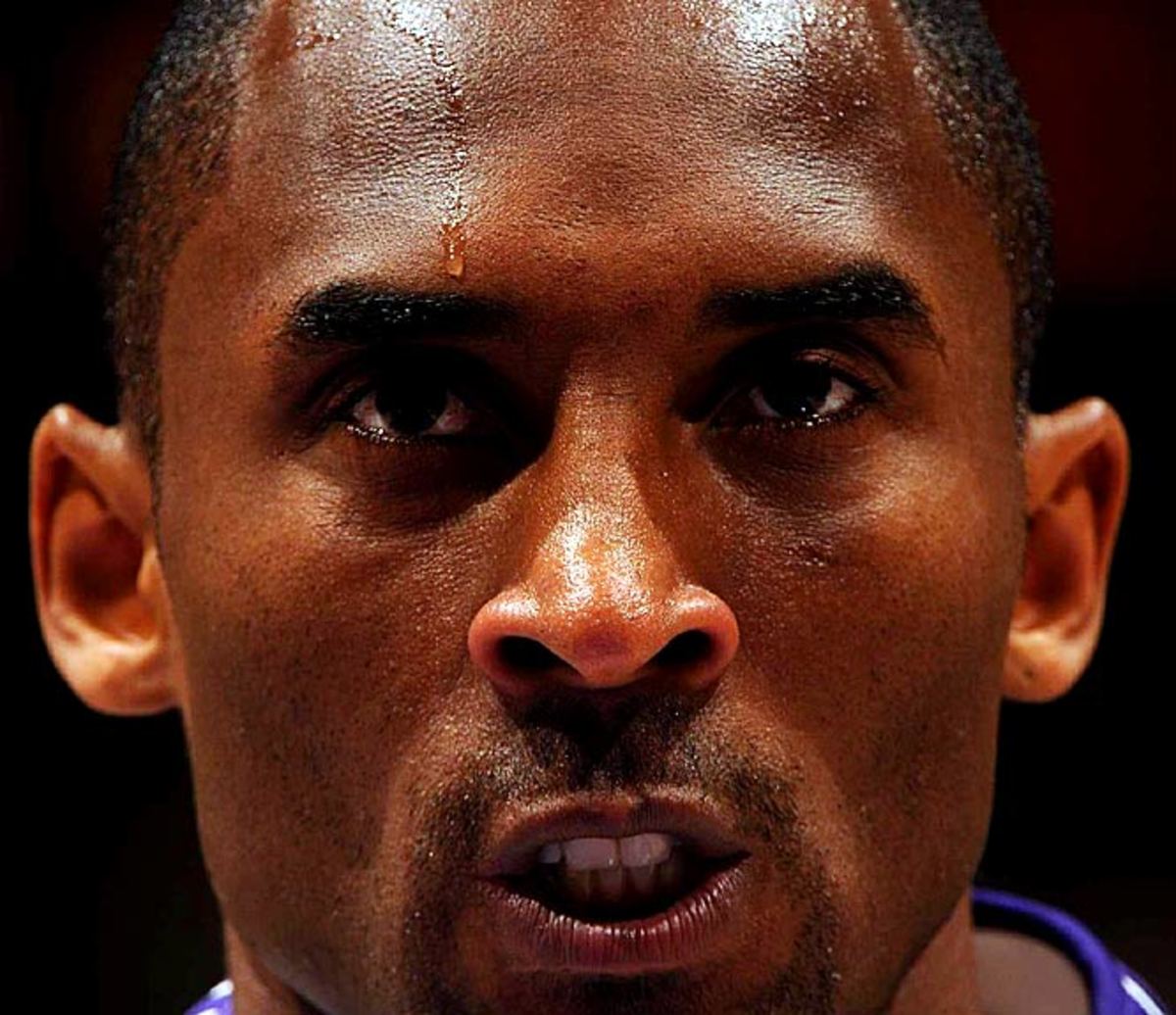
The Lakers cruised through the 2008-09 regular season and, after being pushed by Houston and Denver in the Western Conference playoffs, defeated Orlando in five games in the Finals. An intense Kobe -- who said his daughters called him Grumpy because of his disposition during the championship round -- won his first title without Shaq and fourth overall.
